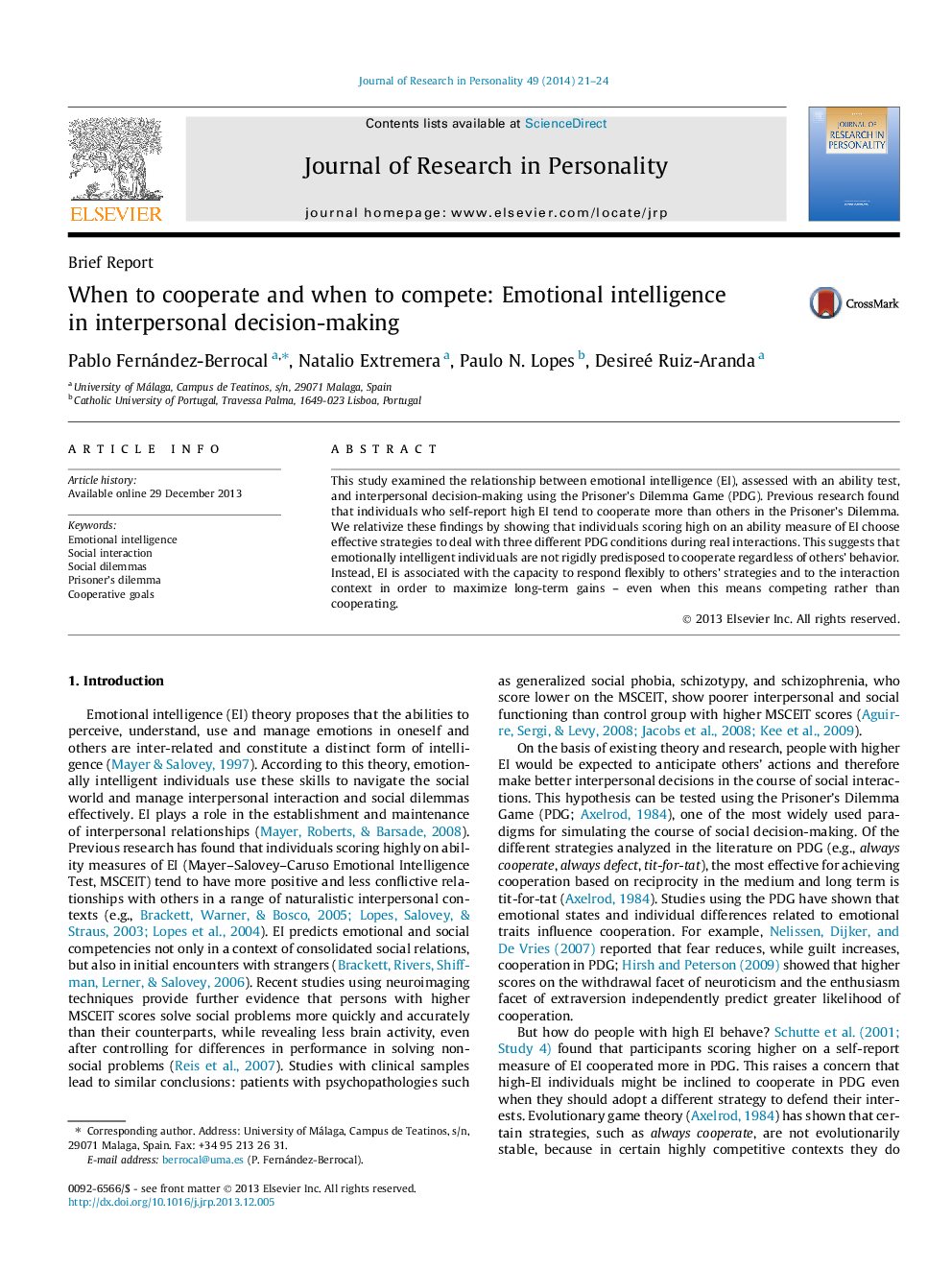| کد مقاله | کد نشریه | سال انتشار | مقاله انگلیسی | نسخه تمام متن |
|---|---|---|---|---|
| 951401 | 1475949 | 2014 | 4 صفحه PDF | دانلود رایگان |
• This study examined the relationship between EI and interpersonal decision-making.
• EI does not predispose people toward cooperation, regardless of others’ behavior.
• Emotionally intelligent people adjust their response to the other person’s strategy.
• EI may contribute to anticipate others’ behavior and emotions.
• Emotionally intelligent people rise long-term gains, even competing when necessary.
This study examined the relationship between emotional intelligence (EI), assessed with an ability test, and interpersonal decision-making using the Prisoner’s Dilemma Game (PDG). Previous research found that individuals who self-report high EI tend to cooperate more than others in the Prisoner’s Dilemma. We relativize these findings by showing that individuals scoring high on an ability measure of EI choose effective strategies to deal with three different PDG conditions during real interactions. This suggests that emotionally intelligent individuals are not rigidly predisposed to cooperate regardless of others’ behavior. Instead, EI is associated with the capacity to respond flexibly to others’ strategies and to the interaction context in order to maximize long-term gains – even when this means competing rather than cooperating.
Journal: Journal of Research in Personality - Volume 49, April 2014, Pages 21–24
